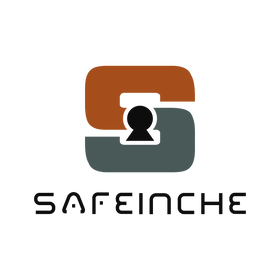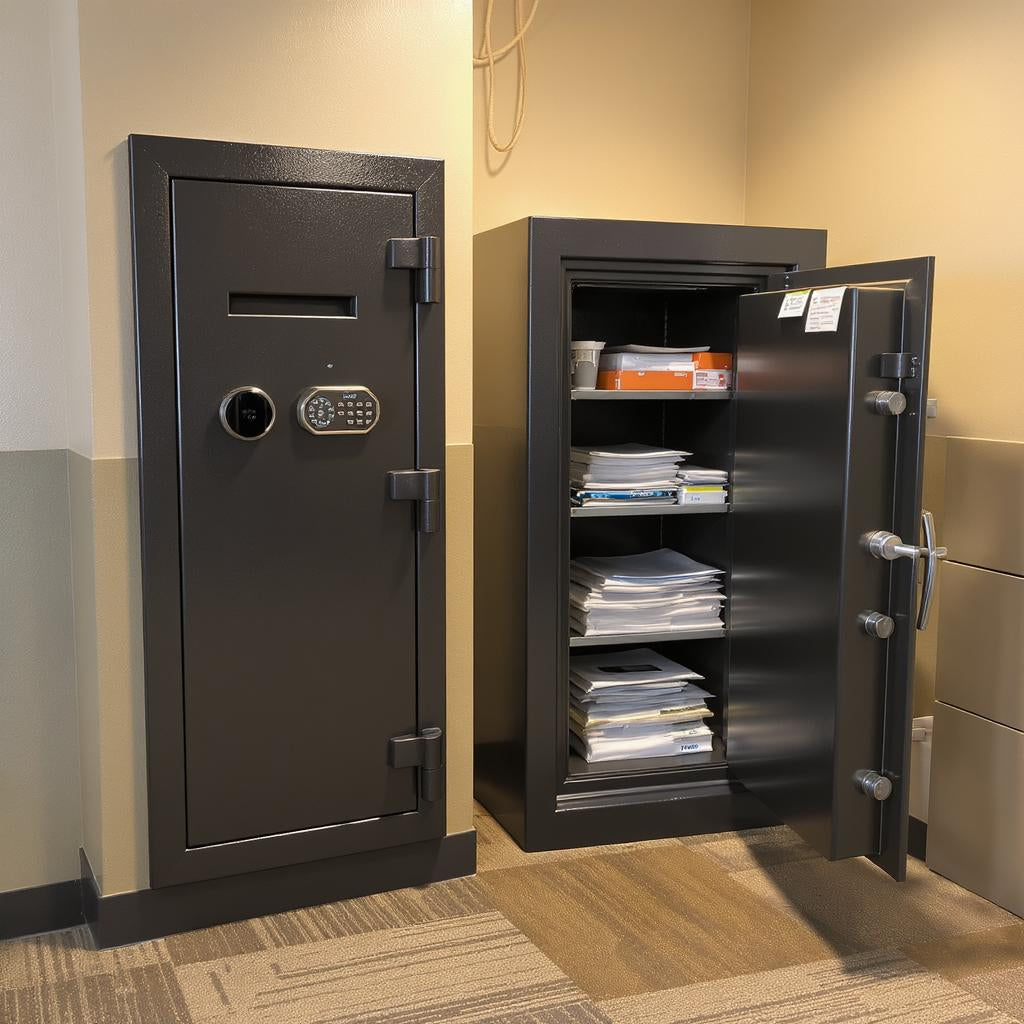Every small business needs to protect something—cash, keys, contracts, stock, data, hardware wallets.
In 2025, that protection needs to be smart, tough, and tailored. Whether you're running a retail shop, legal practice, clinic, or studio, the right safe gives you peace of mind and a practical edge.
Here's a breakdown of the best types of safes for small businesses, with real-world use cases and what to look for.
1. Depository Safes (Drop Safes)
Best for: Retailers, restaurants, delivery-based businesses
These safes let staff drop in cash or documents without opening the main compartment. Perfect for high-cash environments or when multiple people need access during the day but only management should open the safe.
Key Features:
-
Front or top-loading deposit slots
-
Anti-fish baffles to stop tampering
-
Dual locks for extra control
-
Bolt-down kits for floor anchoring
Why it works: It reduces till exposure, speeds up end-of-day routines, and limits internal access to takings. In 2025, newer models also include digital audit trails and remote lock control.
2. Fireproof Safes for Documents and Data
Best for: Offices, legal firms, accountancy practices, healthcare providers
Fires destroy more small businesses than break-ins. These safes are built to protect paper and digital media from heat and humidity.
Key Features:
-
Fire ratings from 30 to 120+ minutes
-
Certified resistance for paper and digital storage (e.g. USBs, drives)
-
Sealed design to block moisture and smoke
-
Optional shelving or trays
Why it works: Whether it's contracts, licenses, tax records, or backups—this is about survival, not just security. Even in a total fire loss, your business data can be safe.
3. Underfloor Safes
Best for: Businesses with on-site cash or discreet high-value storage
Installed under concrete or tiles, these safes are tough to find and tougher to remove. Great for jewellery shops, pawnshops, or anyone storing cash overnight.
Key Features:
-
Concrete-encased body for fire resistance
-
Rotary or digital locks
-
Secure lids with anti-drill plates
-
Flush-fitting covers for concealment
Why it works: Out of sight means added protection. Even if burglars gain access, they may never find it—and if they do, removing it isn't quick.
4. Wall Safes
Best for: Offices, clinics, and studios with limited floor space
Wall safes fit between wall studs and are easily hidden behind artwork or furniture. They’re best for light valuables and sensitive documents you need to access quickly.
Key Features:
-
Depth options to suit wall thickness
-
Biometric or keypad locks
-
Steel reinforcement and tamper alerts
-
Easy-to-install templates
Why it works: Ideal for managers and professionals who need daily access to secure documents, client files, or small valuables without taking up floor space.
5. High-Security Burglar-Rated Safes
Best for: Any business storing high-value goods, stock, or sensitive data
If your insurance policy requires it, or you just don’t want to take risks, a burglar-rated safe is non-negotiable. These are tested against break-in methods like drilling, cutting, and prying.
Key Features:
-
Eurograde ratings (Grade 0 to Grade 6+)
-
Anti-drill plates and relocking devices
-
Solid steel body, multi-point locking
-
AiS approval for insurance compliance
Why it works: The higher the rating, the higher the cash rating. Pair it with a good alarm system and you’ve got real-world protection.
6. Dual-Lock Safes for Shared Access
Best for: Partnerships, manager/owner shared access, audit control
These safes require two codes, two keys, or a combo of both to open. Perfect when more than one person needs access but full control matters.
Key Features:
-
Dual electronic and key locks
-
Time delay and audit trails
-
Access control hierarchy
Why it works: Reduces internal risk and helps you track who accessed the safe and when. In 2025, this tech is more affordable and reliable than ever.
What to Consider When Choosing a Safe
Size and Capacity:
-
Too small and it becomes frustrating. Too large and you overspend.
-
Think in litres and layout. Will you store files flat or upright?
Certifications:
-
Look for EN fire ratings, AiS burglary ratings, and CE compliance for electronics.
Mounting and Location:
-
Where will it go? Floor, wall, under desk?
-
Does it need bolting down, concealment, or heavy-duty delivery?
Lock Type:
-
Digital keypad (easy to use)
-
Key lock (no batteries, more secure if you control the key)
-
Biometric (fast but more expensive)
Growth and Future Use:
-
Can it store more if your business expands?
-
Are shelves adjustable? Is there backup key access?
Wrapping Up
The best safe for your business depends on what you’re protecting, where you want to keep it, and who should access it. You don't need the biggest or most expensive safe. You need the right one for your risks, space, and workflow.
Start with what matters most: cash, documents, tech, or stock. Then choose the type that suits how you operate. In 2025, you’ve got options that are smarter, stronger, and better value than ever.

